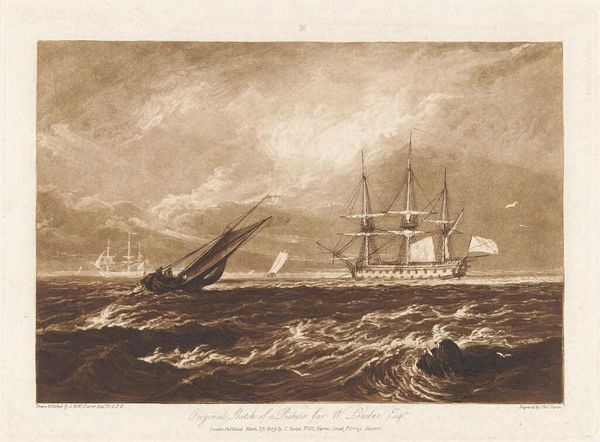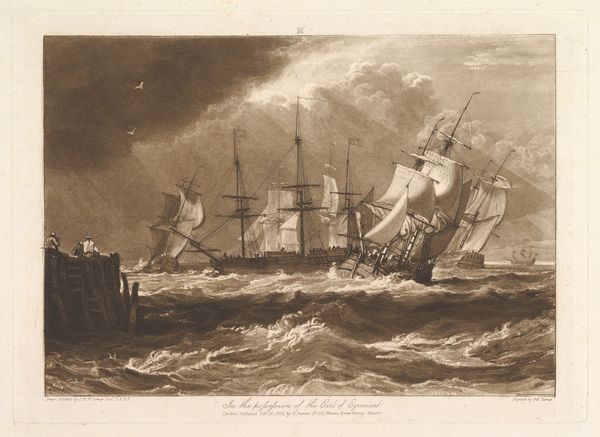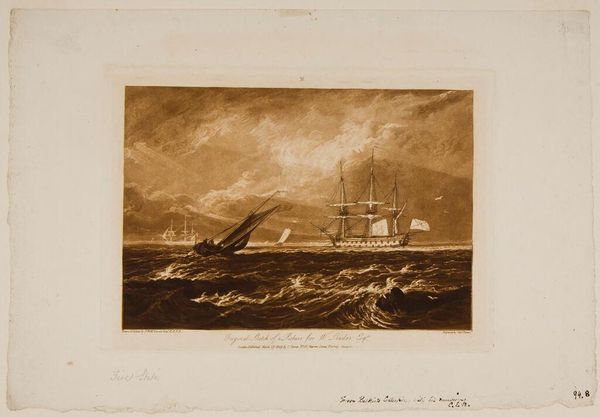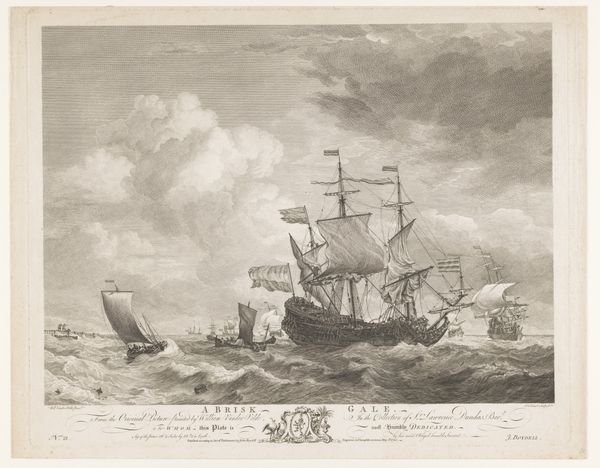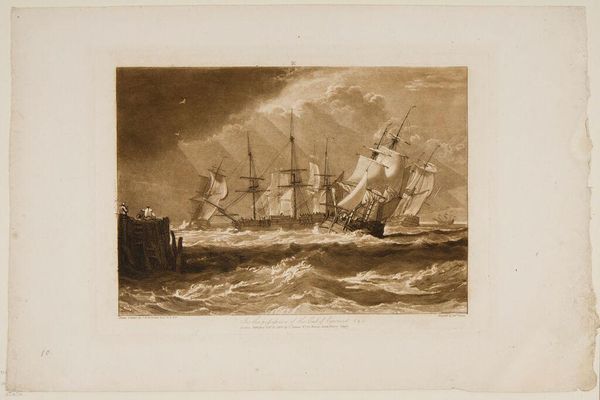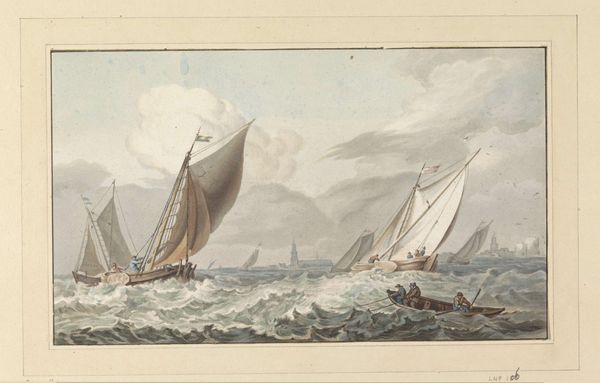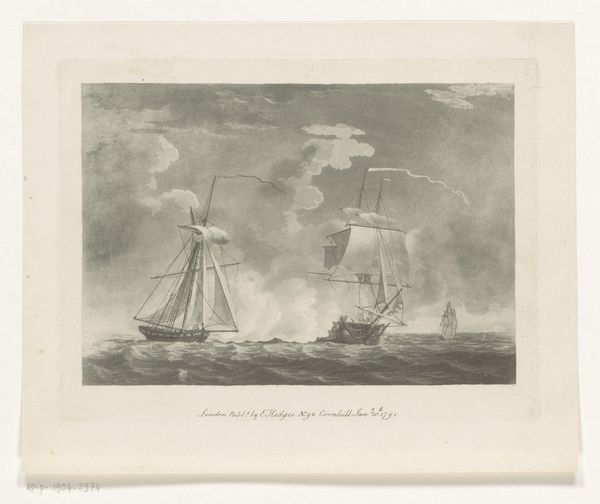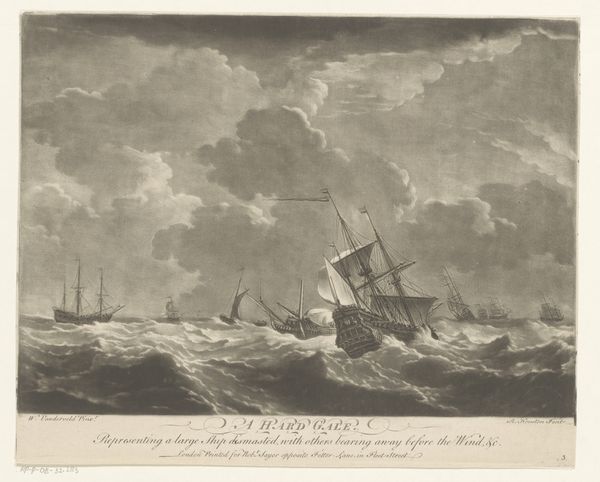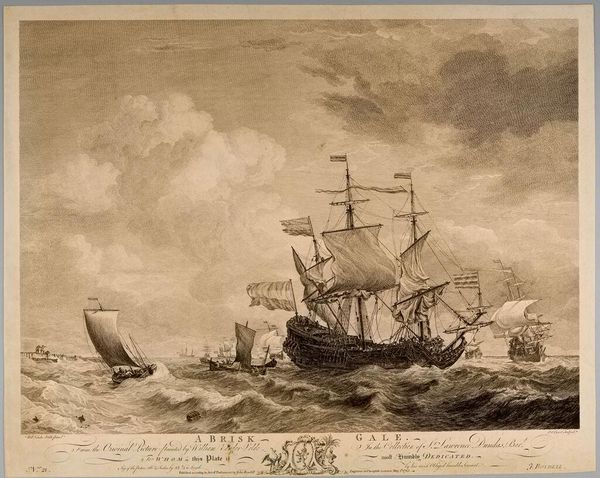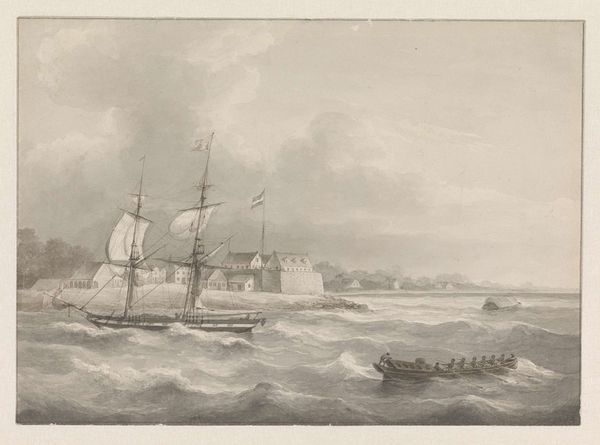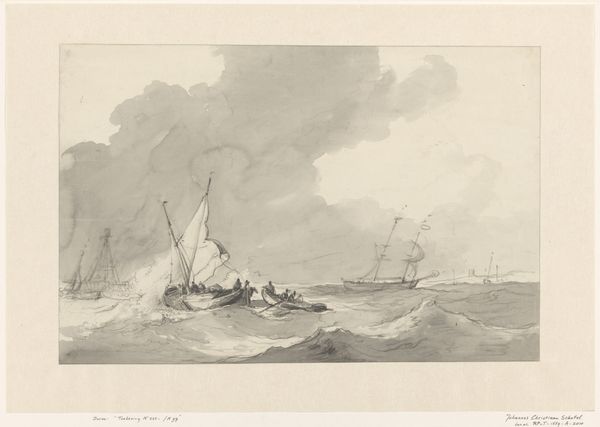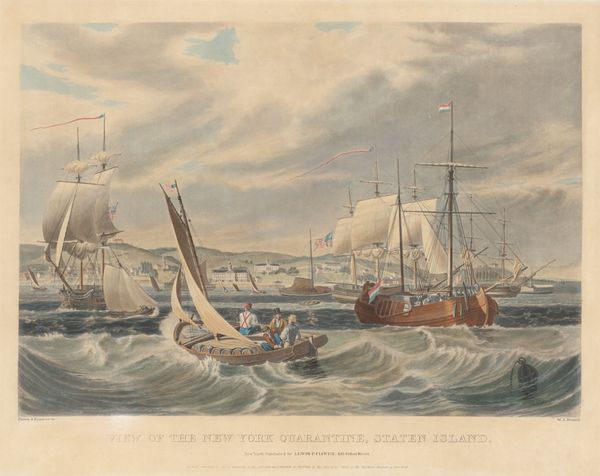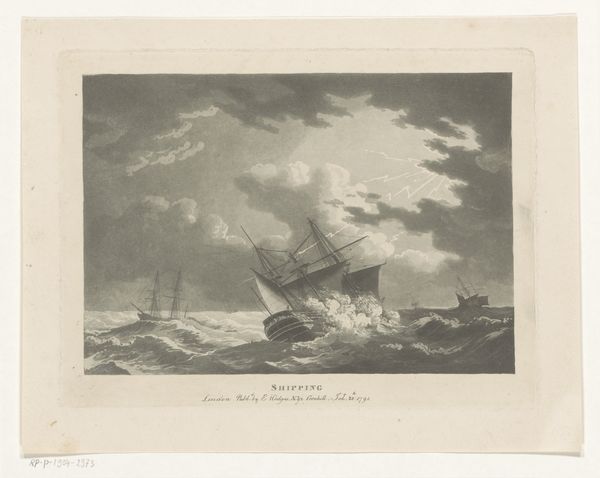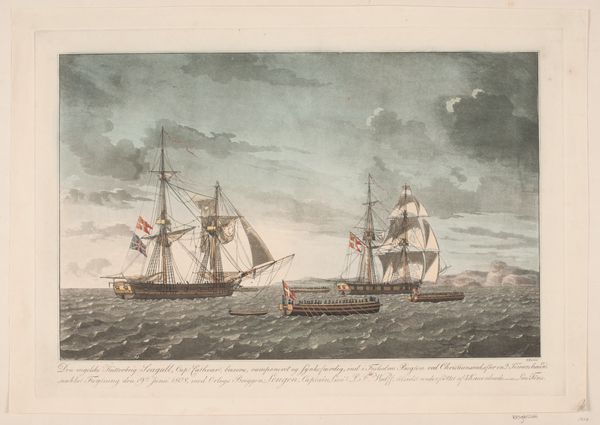
The Leader Sea Piece (Liber Studiorum, part IV, plate 20) 1809
0:00
0:00
drawing, print, etching
#
drawing
# print
#
etching
#
landscape
#
romanticism
#
history-painting
Dimensions: plate: 7 x 10 3/16 in. (17.8 x 25.9 cm) sheet: 8 1/4 x 11 7/16 in. (21 x 29.1 cm)
Copyright: Public Domain
Editor: This is "The Leader Sea Piece," an etching from 1809 by J.M.W. Turner, part of his "Liber Studiorum" series. It's almost monochromatic, just subtle gradations of brown, and the sea looks incredibly turbulent. What compositional elements stand out to you? Curator: The contrast is compelling. Observe how Turner masterfully employs light and shadow to define the tumultuous waves in the foreground and the relative tranquility of the sky, the dynamism this interplay creates. Do you see how the placement of the ships reinforces this sense of spatial recession and depth? Editor: Yes, the smaller vessel struggling against the waves contrasts sharply with the larger ship further out to the right, creating that depth you mentioned. Is there any symbolic meaning behind this stark composition? Curator: To focus solely on potential symbolism risks overlooking the power of the form itself. Consider the formal aspects: The etching technique, with its layering of lines and textures, perfectly conveys the roiling surface of the water. It begs a reading as abstract form rather than relying on outside symbology. Note the careful distribution of visual weight and balanced shapes to achieve its affecting quality. How might a different distribution of elements have resulted in the visual qualities experienced differently by the viewer? Editor: That’s a good point; thinking about it as an arrangement of shapes helps separate it from simply a depiction of boats. By focusing on the gradations and interplay of shapes, Turner brings order to what would have been chaos in the actual scenery. It is beautiful in itself, quite apart from what it means! Curator: Indeed. By prioritizing compositional design over mimetic representation, Turner is exploring fundamental principles of art-making. This focus enables us to decode an internal grammar and its emphasis on elements that engage beyond mere description.
Comments
No comments
Be the first to comment and join the conversation on the ultimate creative platform.
